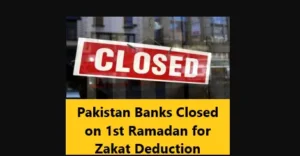Fatwa to Stop Women from General Elections 2024 in an absurd development.
Kohistan Election Controversy: Clerics Bar Female Door-to-Door Campaigning
Kohistan, Pakistan: A brewing controversy casts a shadow over the upcoming February 8th general elections in Kohistan district, as a group of influential clerics has issued a decree outlawing female door-to-door campaigning.
Read More: ECP Announced Plan for General Elections 2024
This ruling sparked debate and concerns about potential disenfranchisement of women candidates and voters.
The Decree:
- A 30-member JUI-F-affiliated group of clerics, led by Mufti Gul Shahzada, unanimously issued a decree deeming female door-to-door campaigning “against Islamic injunctions and Shariah.”
- Around 400 clerics from across Kohistan endorsed this decree, adding another layer of complexity to the already-fraught electoral landscape.
Impact on Women Candidates:
- This ruling directly impacts several female candidates contesting the elections, including Tehmina Faheem, Momina Basit, and Sanaya Sabeel.
- Their ability to connect with voters at their doorsteps, a vital campaign strategy, has been abruptly restricted.
Clerics’ Justification:
- Mufti Shahzada claims the decree adheres to Islamic principles, referencing religious texts to support his stance.
- He further warns against casting votes based on non-religious factors like language, region, or clan, urging voters to prioritize ideology.
Concerns and Debate:
- The decree has ignited concerns about the potential disenfranchisement of women voters and candidates in Kohistan.
- Questions arise about the legality and ethical implications of religious pronouncements influencing the electoral process.
- Civil society groups and women’s rights activists are likely to challenge this ruling, potentially setting the stage for legal battles.
Moving Forward:
- The Kohistan election saga highlights the evolving dynamics of Pakistani politics, particularly the intersection of religion and gender.
- It necessitates open dialogue and a nuanced understanding of both religious sensitivities and democratic principles.
- Ensuring fair and inclusive elections for all candidates and voters remains the fundamental objective.
Spread the Word
Note: The information above might not be accepted 100%. Please verify from your own sources. We will not be responsible for any kind of loss due to our content.
For more news, please visit Munafa Marketing.




